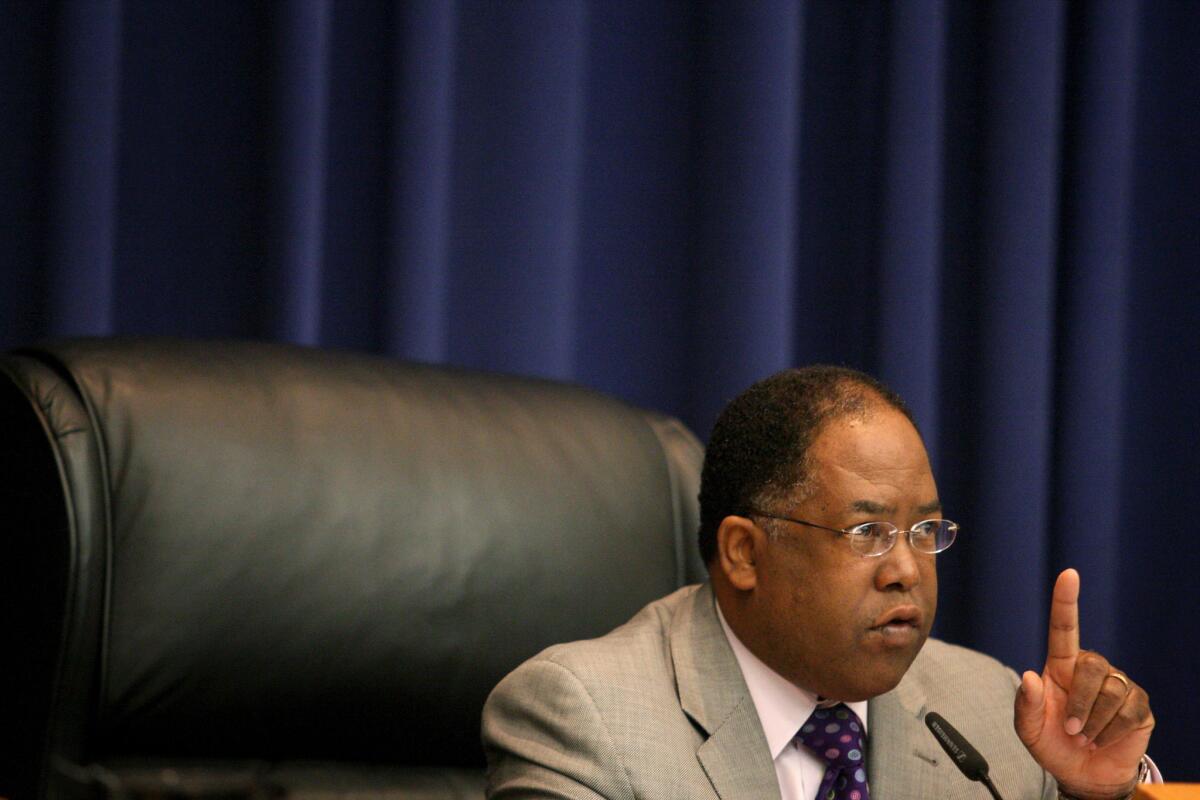L.A. County board wades into debate on medical malpractice measure

Los Angeles County supervisors waded into a debate on the merits of a November ballot initiative that would raise the cap on medical malpractice claims for pain and suffering.
On Tuesday, the county board heard various viewpoints on the measure in advance of a vote next week on a resolution that would put the county on record opposing the initiative.
Proponents of Proposition 46 told the supervisors that the current $250,000 cap set in 1975 is out of date and has become an obstacle for accountability when fatal or life-altering medical errors are made. If voters approve it, the cap would rise to $1.1 million.
Tammy Smick told the board that her son was killed when hospital personnel mistakenly gave him a lethal combination of medications. “While there’s no amount of money that will ease my pain and suffering, I want accountability for what was truly a senseless and preventable loss,” she said.
But opponents of the initiative said it could result in less healthcare for the poor and uninsured.
“Since judgments and settlements arising from medical malpractice claims are generally incurred as costs to the county’s general fund, any increases in the cap would inevitably result in reduced funding resources available for patient care,” according to a motion opposing the ballot initiative introduced by L.A. County Supervisor Mark-Ridley Thomas.
The Sacramento Bee reported that Ridley-Thomas’ proposal followed a $75,000 donation by Proposition 46 opponents to the African American Voter Registration, Education and Participation Project, a political action committee founded by the supervisor.
Ridley-Thomas’ spokeswoman noted that the board of supervisors has previously opposed raising the cap on medical malpractice claims.
“Any implication that this is new or inspired by recent events is completely inaccurate,” the spokeswoman, Lisa Richardson, said.
Twitter: @gtherolf
More to Read
Start your day right
Sign up for Essential California for news, features and recommendations from the L.A. Times and beyond in your inbox six days a week.
You may occasionally receive promotional content from the Los Angeles Times.







